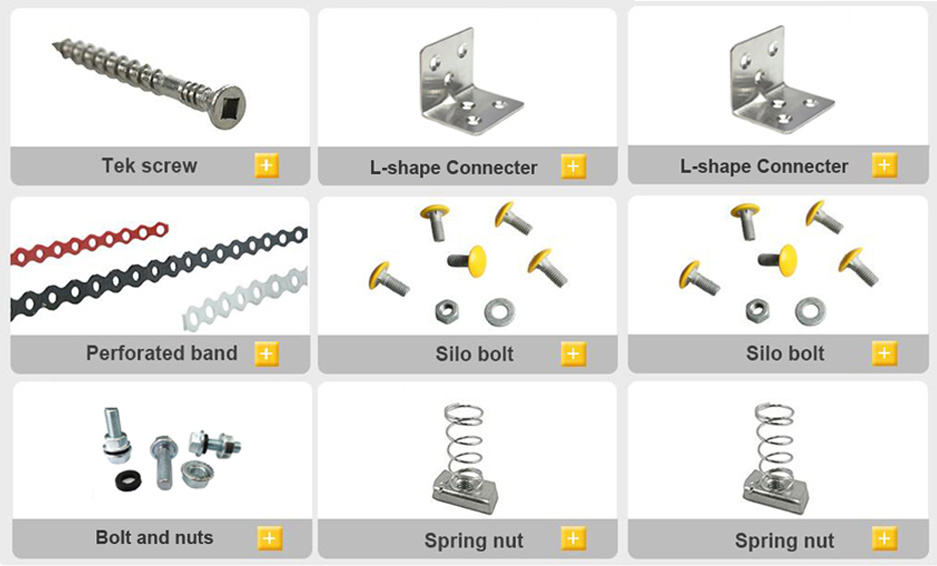Choosing the Right Material to Secure the Future
Release Time:
Aug 29,2025


In daily engineering design, manufacturing, and maintenance, selecting the right fastener material is critical to ensuring project success, safety, and reliability. Choosing the wrong material can lead to corrosion, failure, or even catastrophic breakdowns. To help you make informed decisions, the technical team at Nantong Jindi Fastener Co., Ltd provides an in-depth comparison of the two most commonly used materials: stainless steel and carbon steel, including their advantages, disadvantages, and typical applications.
1. Stainless Steel Fasteners: The Corrosion-Resistant Guardians
Key Advantages:
Exceptional Corrosion Resistance: This is stainless steel’s most notable advantage. It resists moisture, rain, many chemicals, and industrial atmospheres, making it ideal for outdoor and harsh environments.
Aesthetic and Durable: The surface remains bright and clean, often used where appearance or hygiene matters.
Long Life Cycle: Although initial costs are higher, its longevity and low maintenance often result in lower total cost of ownership.
High Temperature Resistance: Certain grades (e.g., 316) can withstand relatively high temperatures.
Potential Disadvantages:
Higher Cost: Raw material and manufacturing processes make stainless steel fasteners generally more expensive than carbon steel.
Relatively Lower Strength: Compared to high-strength carbon steel of the same grade, standard austenitic stainless steel (e.g., 304, 316) has lower strength and hardness.
Galling Risk: During installation, friction between threads may cause cold welding and adhesion; special lubricants are often required.
Typical Applications:
Outdoor Facilities: Solar mounting systems, railings, building curtain walls.
Food and Pharmaceutical Industries: Production equipment and utensils due to easy cleaning and resistance to disinfectants.
Marine & Coastal Environments: Ships, docks, seaside structures (316 stainless steel is recommended).
Chemical and Medical Equipment: Applications requiring resistance to chemical corrosion and high cleanliness.
2. Carbon Steel Fasteners: The Cost-Effective Powerhouse
Key Advantages:
High Strength and Hardness: Carbon steel can be heat-treated (quenched and tempered) to achieve high strength grades (e.g., 8.8, 10.9, 12.9), making it ideal for heavy-load and high-stress applications.
Cost-Effective: Low raw material costs and mature manufacturing processes make it the most economical choice.
Excellent Wear Resistance: Properly heat-treated carbon steel fasteners offer outstanding wear resistance.
Versatility: Various surface treatments (see below) adapt it to multiple environments.
Potential Disadvantages:
Prone to Corrosion: Carbon steel is highly susceptible to rust and must rely on surface treatments for protection.
Requires Surface Treatment: Additional plating or coating steps add complexity to the supply chain.
Surface Treatment Options:
Galvanizing: The most common and economical option, providing general rust protection. Includes electro-galvanizing (silver) and hot-dip galvanizing (thicker, with patterns).
Dacromet/Geomet: No hydrogen embrittlement risk, with corrosion resistance far exceeding galvanizing. Ideal for high-strength fasteners and automotive applications.
Phosphating: Primarily provides a lubricating layer and short-term rust prevention, often used as a primer for painting.
Typical Applications:
Steel Structure Buildings: Connections for beams, columns, and bridges where high-strength bolts (e.g., 10.9S) are critical.
Automotive Manufacturing: Engine, chassis, and suspension systems where high strength is required.
Machinery and Heavy Equipment: Frames, gearboxes, mining machinery, etc.
General Indoor Furniture and Appliances: In dry environments, galvanized carbon steel screws offer the best cost-effectiveness.
How to Choose? A Decision Flowchart
For your specific project, follow this decision process:
Environment Is the Primary Factor: Is the application exposed to moisture, chemicals, or requires aesthetics/hygiene? Yes → Choose Stainless Steel.
Strength Is Critical: Will the connection bear heavy loads, tension, or vibration? Yes → Choose High-Strength Carbon Steel.
Budget Is a Key Constraint: Is project cost sensitivity high? Yes → Choose Surface-Treated Carbon Steel where corrosion risk is low.
Most Important Rule: Avoid Dissimilar Metal Contact! If stainless steel fasteners are used with carbon steel structures or different metals are connected in humid environments, galvanic corrosion may occur, accelerating rusting of the carbon steel. Use insulating washers or coatings to isolate such connections.
About Us
Nantong Jindi Fastener Co., Ltd. offers a full range of carbon steel and stainless steel fastener solutions, from standard to custom special parts, all compliant with international standards (ISO, DIN, ASTM, GB). Our technical sales team is ready to provide free selection advice and material analysis to ensure your project achieves unshakable security.
Contact Us Now:

Keywords:
More information






